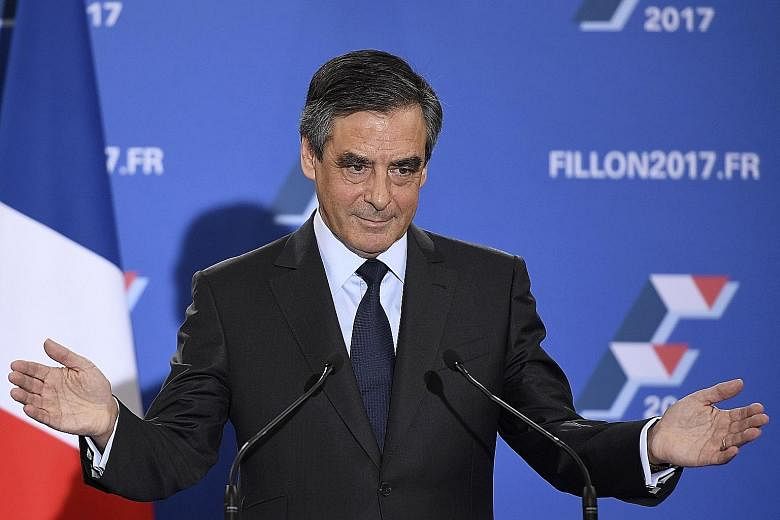CONSERVATIVE INSIDER V FIREBRAND OUTSIDER
The battle between Mr Fillon and Ms Le Pen pits a representative of the old order against the self-proclaimed standard-bearer of a new one. And it will decide whether France succumbs to the wave of populist politicians now sweeping the industrialised West, or whether, as so often in its history, it bucks the trend.
Mr Fillon, 62, is the embodiment of bourgeois respectability, as befits the leader of a party originally established by General Charles de Gaulle, France's wartime leader and national saviour. He lives in a stunning 12th-century chateau, some 200km west of Paris, and has five photogenic children. He wears bespoke-tailored tweed suits, expensive Italian shoes, and sources his hallmark red socks from the same shop that supplies to popes in the Vatican.
Yet despite his carefully nurtured rural gentleman image, his career is very much implanted in the French capital. His parliamentary constituency is in a wealthy part of Paris, and Mr Fillon has served in every French Cabinet since the 1990s.
He does not mind being branded a conservative. In fact, he relishes it: he opposed the legalisation of same-sex marriages, advocates restrictions on abortion rights and detests France's trade unions. Even in sports, he makes no concessions to populists: he is a motor-racing enthusiast, notwithstanding the fact that he lost one of his brothers to a car accident.
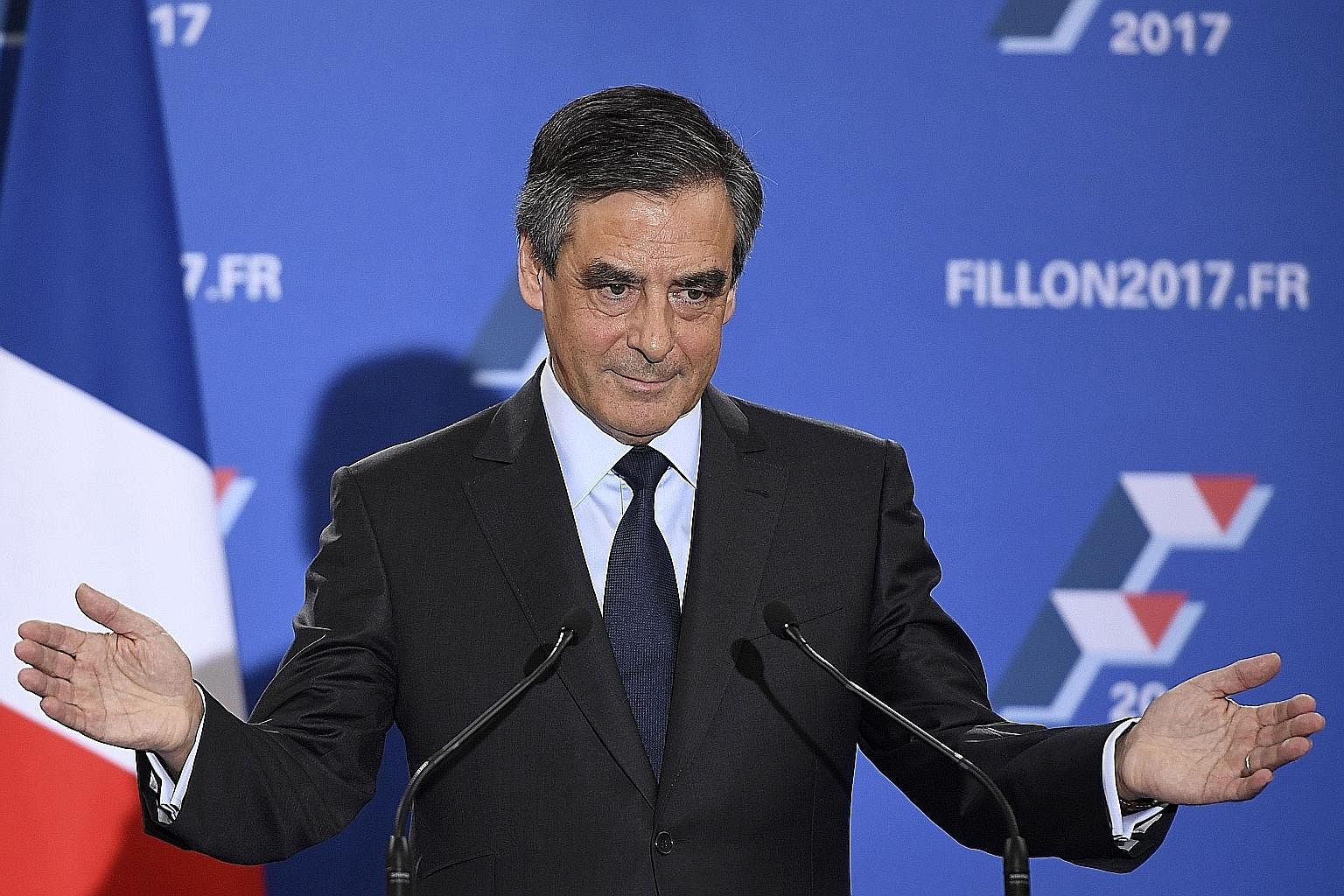
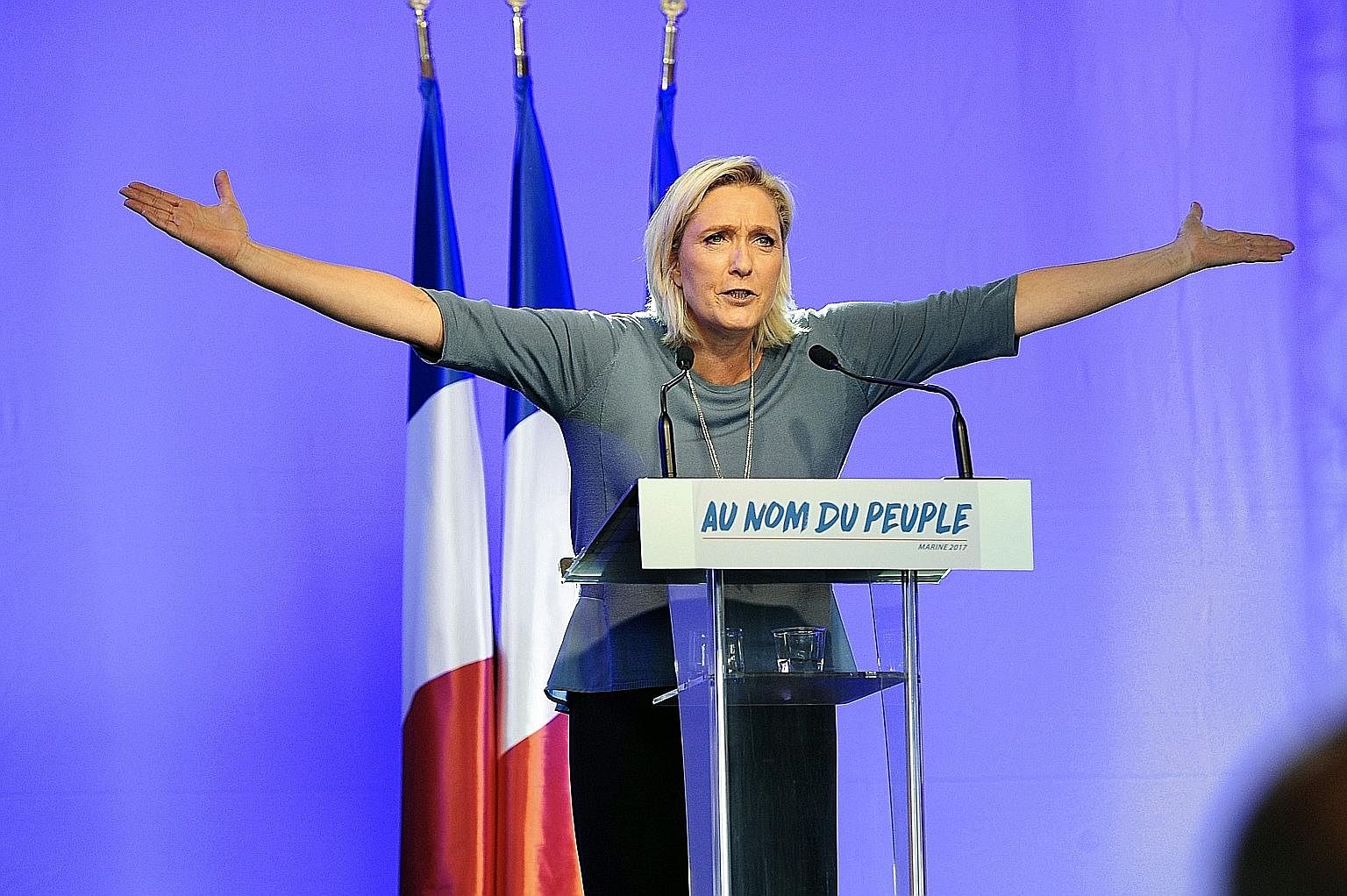
Ms Le Pen could not be more different. At 48, she is young by traditional French political standards. And as a twice-divorced mother of three, her private life remains unusual, for although many French politicians experience broken marriages, few wear this on their sleeve as Ms Le Pen does.
Her career was helped by the fact that her father, Mr Jean-Marie Le Pen, founded the National Front in 1972. But, as Ms Le Pen frequently points out, that was as much a liability as an advantage. As a child, she miraculously escaped death when her father's Paris apartment was blown up by an assassin; "20kg of dynamite was my formative childhood experience," she once wryly remarked.
While still in her teens, her mother abandoned the family, and subsequently appeared naked in pornographic publications, not something any child would care to remember. And after studying law at Paris university, she was shunned by many of her fellow lawyers.
But her "call of fate", as she put it, was politics. She transformed the National Front from a fringe movement, which acted as a refuge for anti-Semites and other social misfits, into a mass political movement. Her rallies always attract tens of thousands.
In the raspy voice of a chain smoker, Ms Le Pen has succeeded in dismissing both the Republicans and Socialists as part of the same elite which she says "betrayed France" by allowing in immigrants and consenting to the country's integration into the European Union.
Their pitches
Mr Francois Fillon promises to subject France to an "electro-shock" of radical economic reform.
Proclaiming France as "bankrupt", he proposes to allow employers to hire people on flexible working contracts, thereby ending France's experiment with a 35-hour work week, one of the shortest in any industrialised country.
Mr Fillon also promises to slash half a million civil service jobs over the five years of his presidency, and extend the age at which French men and women can retire. He also plans to offer businesses €40 billion (S$60.4 billion) in tax breaks to revive France's economic growth.
And if this is not controversial enough, he wants to cut down on France's universal healthcare by restricting the debt-laden national health insurance scheme to severe and long-term diseases and chronic complaints, while letting private insurers pick up the tab for the rest.
Mr Fillon seems unperturbed by accusations that he is "amputating the Republic" or that he is "(former British premier Margaret) Thatcher and (former US president Ronald) Reagan wrapped into one", as his opponents put it.
Nor is he taken aback by the anticipated opposition from the country's powerful trade union bosses, with whom he has crossed swords in the past. "Unions will have to feel there's determination," he said, in words echoing those of Mrs Thatcher.
Meanwhile, Ms Marine Le Pen's electoral message - all the more so after Mr Donald Trump's victory in the United States, a triumph Ms Le Pen welcomed as "good for France" - is to "protect the French nation". She said the country "is defenceless in the face of economic liberalism and multiculturalism imposed from abroad", especially from the European Union.
The National Front's electoral manifesto, which will be published in February, is certain to reiterate longstanding proposals to cut the number of legal immigrants from 200,000 to 10,000 a year. "We are not going to welcome any more people. Stop, we are full up!" she said recently. She also plans to deport all illegal immigrants and punish "those people whose beliefs, values and practices are not ours, who don't have a vocation to be in France".
Although pledged to "removing red tape for business", her economic policy is essentially protectionism. She is against free trade and vows to protect French businesses from competition.
She wants to hold a referendum on France's continued membership of the euro common currency and prefers the revival of the French franc as a financial prelude to the launch of "large-scale" industrial projects which she never specifies.
Best known for
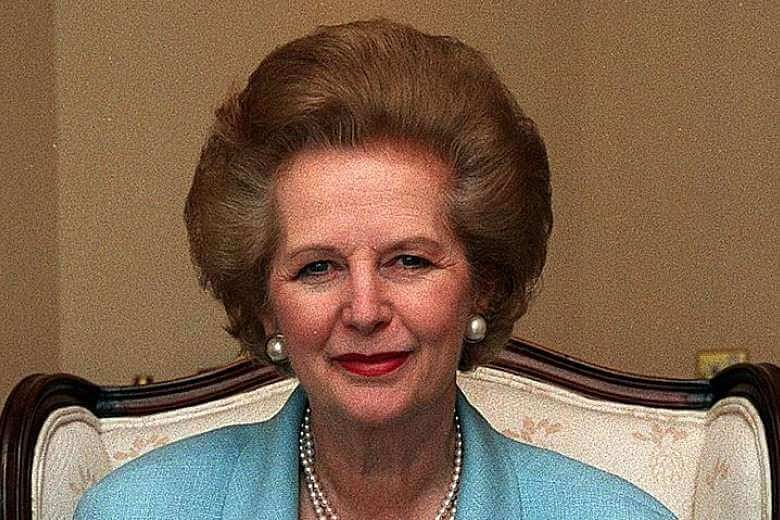
In a country suspicious of Anglo- Saxons, Mr Fillon is unique. He is married to a Briton and speaks fluent, if heavily-accented, English. He is an avowed admirer of Britain and of the late Lady Thatcher, the country's right-wing reformer.
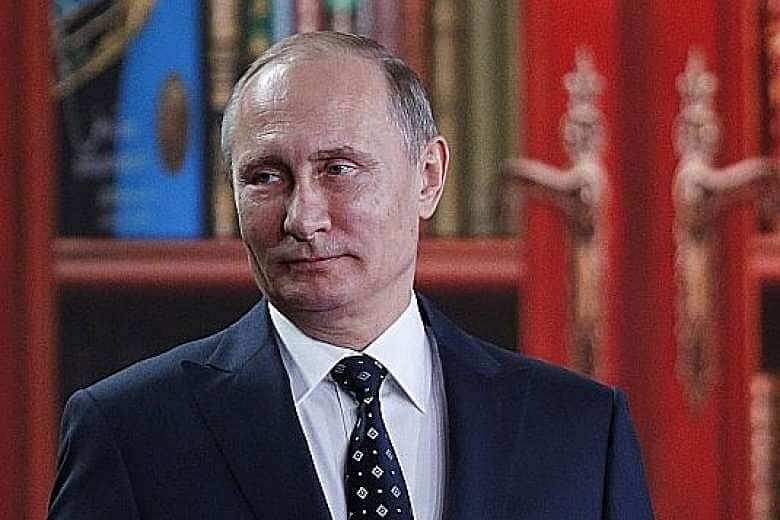
Bucking another trend, Mr Fillon is a friend of Russian President Vladimir Putin and he blames the West for inflaming tensions with Russia.
Ms Le Pen's most famous quality is her steely determination to succeed, whatever the cost to her personal life. She even banned her father from the National Front last year after he continued making anti-Semitic comments.
The party remains a family affair: Ms Le Pen's domestic partner is the party's vice-president, while one of her closest aides is her niece Marion Marechal-Le Pen who, at the age of 22, became France's youngest MP in 2012.
Her opposition to Muslims in France is unremitting - she once compared Muslims praying in public to an "occupation" of her country.
Their backers
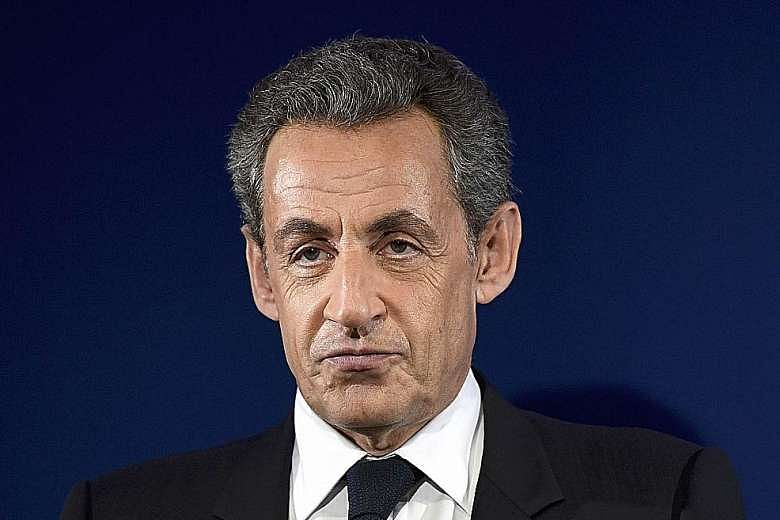
Once derided by former president Nicolas Sarkozy as a "sad case" and frequently dismissed by pollsters as a no-hoper, Mr Fillon has triumphed precisely because he has such an ordinary demeanour.
Unlike Mr Sarkozy with his exaggerated hand-waving, Mr Fillon refrains from gesturing or making bombastic statements, focusing instead on facts and figures during the primary debates.
The fact that he is wealthy but knows how to be discreet about it is another plus. Unlike Mr Sarkozy and his followers, he does not sport flashy jewellery, which is how France's upper and middle classes, his main constituency, expect their president to be.
Mr Fillon's conservative social policies have also won him support among the Catholic Church and pious Christian voters.
Ms Le Pen is appealing to France's small provincial towns and the housing estates in commuter belts built on the outskirts of major cities, home to what French electoral experts call "the rural underclass".
Still, the National Front is not one homogeneous block. In the north of France, Ms Le Pen attracts anti-religious working class voters who expect her to protect their jobs, while in the south she appeals to a constituency which is more right-wing and religious.
What polls say
Barring the unlikely possibility that one candidate gains an overall majority in the first round vote in April next year, the two candidates with the most votes will contest a second and decisive round on May 7.
Current polls indicate that Ms Le Pen can expect to get 29 per cent of the vote in the first ballot, and is therefore likely to qualify for the second round. Mr Fillon's chances of doing the same will depend on him defeating the Socialist candidate in the first round.
If he makes it to the second round, the presidency appears to be his, for he is likely to attract the votes of all those determined to block the National Front. Unless, of course, France's pollsters are as inaccurate as their American counterparts, and Ms Le Pen repeats Mr Trump's surprise victory.

